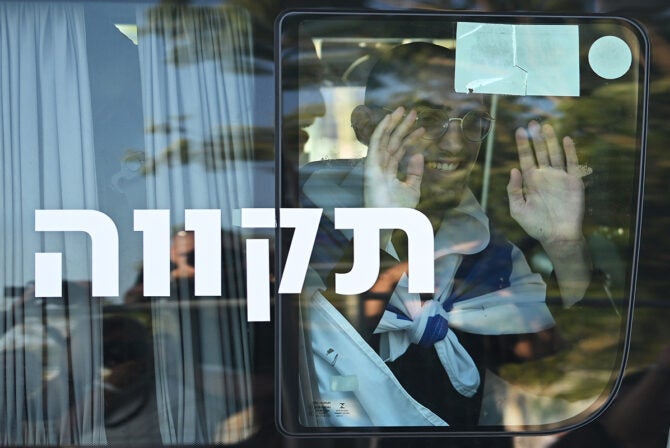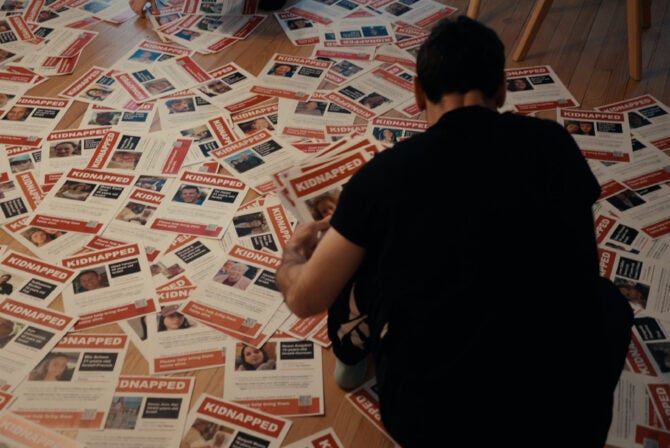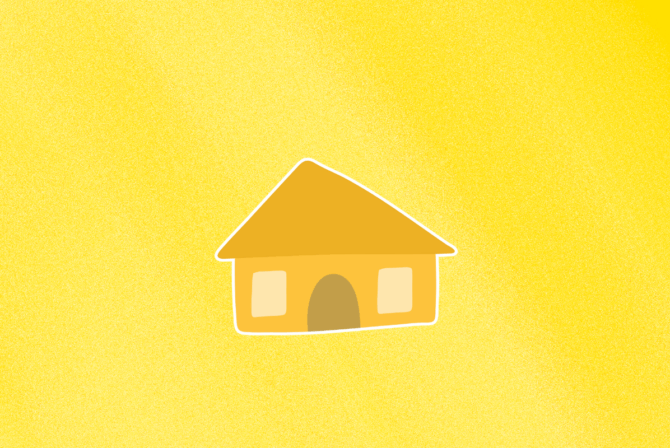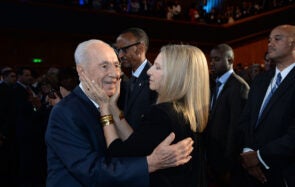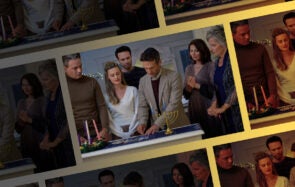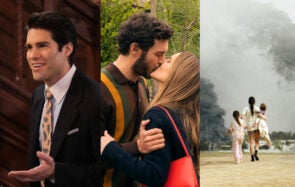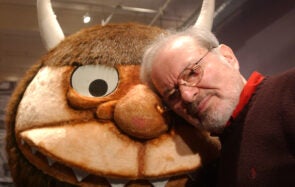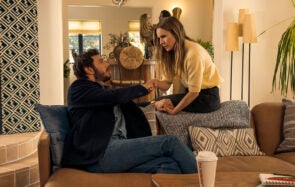A few months ago my husband and I returned to the Midwest, where we both grew up, after seven years of living in Los Angeles. Out in LA, we were far away from family, which meant that we often celebrated holidays on our own. Sure, it may sound sad, celebrating holidays alone, on the other side of the country. But there was a comfort in celebrating on our own, especially as an interfaith couple. We could observe the way we wanted, out of view of the watchful eyes of our family members–no one to check in and see how we were living out our respective traditions.
But this year is different. Not only are we back in the Midwest, and not only do we now have a 1-year-old, and not only will we have members from both sides of our families together, but for the first and last time in our lives, Thanksgiving and the second night of Hanukkah will also fall on the same day.
The last time we had members from both sides of the family together was probably back when we got married seven years ago, and so this dinner is more than just an excuse for me to make Wolfgang Puck’s latkes (he was also in an interfaith marriage when he created the recipe). It’s a chance for us to show everyone how we celebrate. And I’ve decided to take it as an opportunity to explore how this melding of two holidays might be meaningful to everyone involved. Maybe this seems like a lot of pressure, and who knows how everyone will respond, but the way I see it, this is a very, very special occasion. It’s literally a once-in-thousands-of-lifetimes kind of event.
I like what this article notes about how these two holidays share a theme of celebrating religious liberty. That’s something that all parties involved–the Pilgrims seeking religious freedom, the ancient Jews reclaiming the Temple from Hellenistic rule, and now my little family creating meaning at the intersection of these two holidays–have in common.
I find a deep and new connection when I think about the theme of celebrating religious liberty as it pertains to my Chinese Christian family. My grandfather was a young teenager in China (right around bar mitzvah-age, actually) when he converted to Christianity in the early 1900s. He and his twin brother emigrated to the Philippines soon after he adopted his newfound faith. There were a whole lot of Chinese people who migrated to the Philippines and other South Pacific islands at that time; there was a civil war going on. There were a variety of specific reasons that led neutral and nationalist Chinese refugees to leave China, but my family never really talked about my grandfather’s reasons beyond, “His family thought it was a good idea.” But I can’t help but think about how relocating to the Philippines gave my grandfather the freedom to practice Christianity passionately and openly, and kept him safe.
When the Communist Party took over China in 1949, religion in any form was strongly discouraged, and then during the Cultural Revolution Christianity was expressly banned. Many Christians were imprisoned, beaten, and tortured. It’s hard for me to imagine, having grown up here in the United States, what it would be like to live in fear simply for living my faith. I don’t know what would have happened to the story of my family’s faith had my grandpa not left the home of his family. I know this story is all too familiar in the history of Jews.
I look forward to coming together over this shared celebration of Thanksgiving and Hanukkah, and thinking about the ways in which our family has survived through generations, holding fast to old traditions, and at times embracing new ones. I celebrate the freedom I had to marry the man I loved, despite his coming from a different faith. I celebrate the freedom to raise our daughter in love, teaching her the traditions from all her family’s backgrounds.
On Thursday, we’ll light that second candle as the sun sets just before 4:30 p.m. (yikes, Chicago!). I’ll print out the Hanukkah blessings in Hebrew transliteration and English so that everyone can say them together and understand what we’re saying. My daughter will point and say “Light!” (it just happens to be her first word; very apropos, don’t you think?). And as we begin dinner, I’ll ask everyone to share something for which they are thankful. I’ll have a hard time choosing, because there are so many things. I’m grateful to live in a time and place in history where my interfaith family is possible, where members of my diverse family can share a meal, and for religious liberty and peace. Well, peace, that is (gulp!), until next year when Hanukkah and Christmas go back to coinciding in time! But let’s save that for another day.
Like this post? Get the best of Kveller delivered straight to your inbox.
